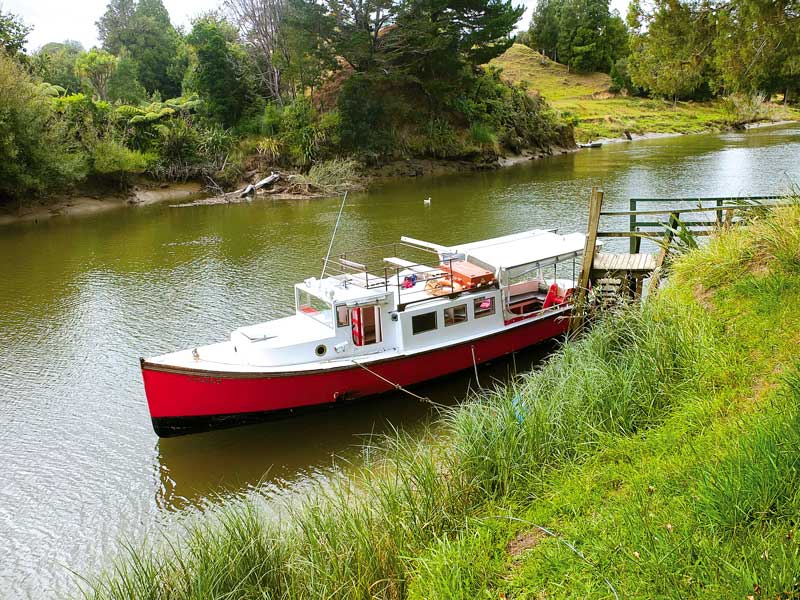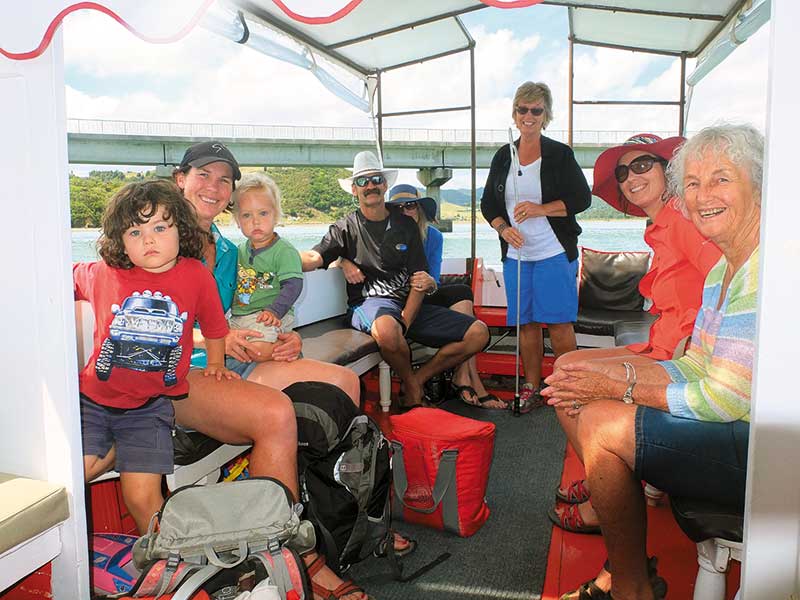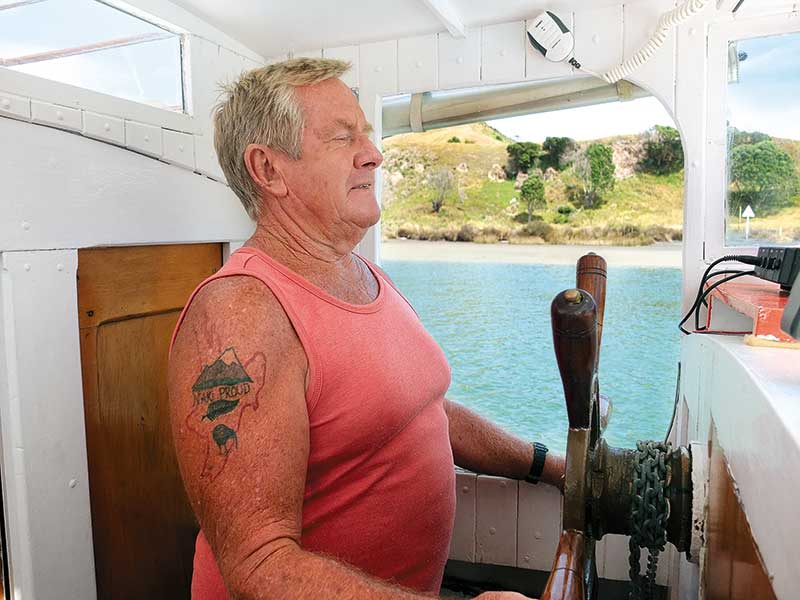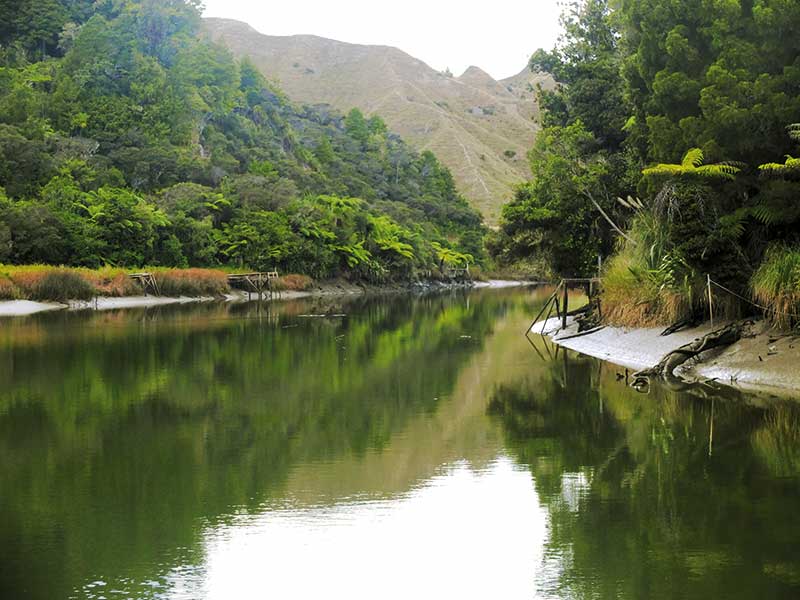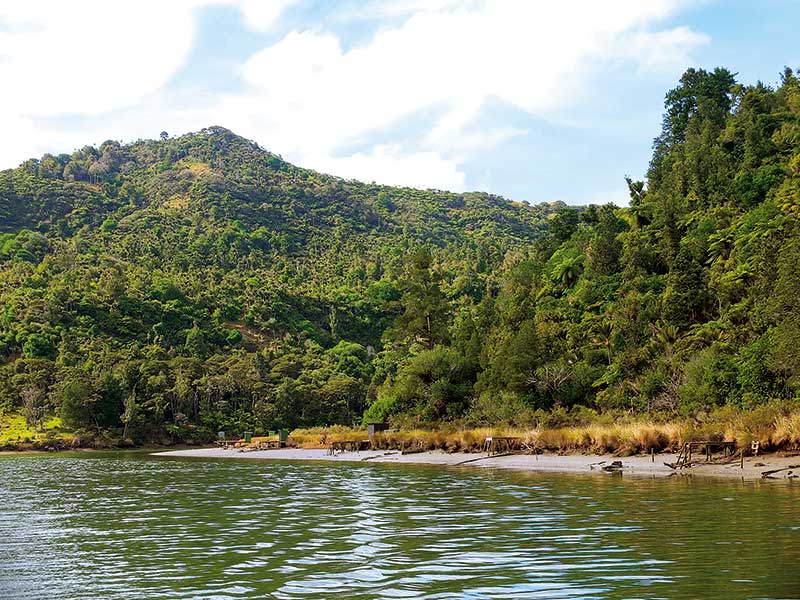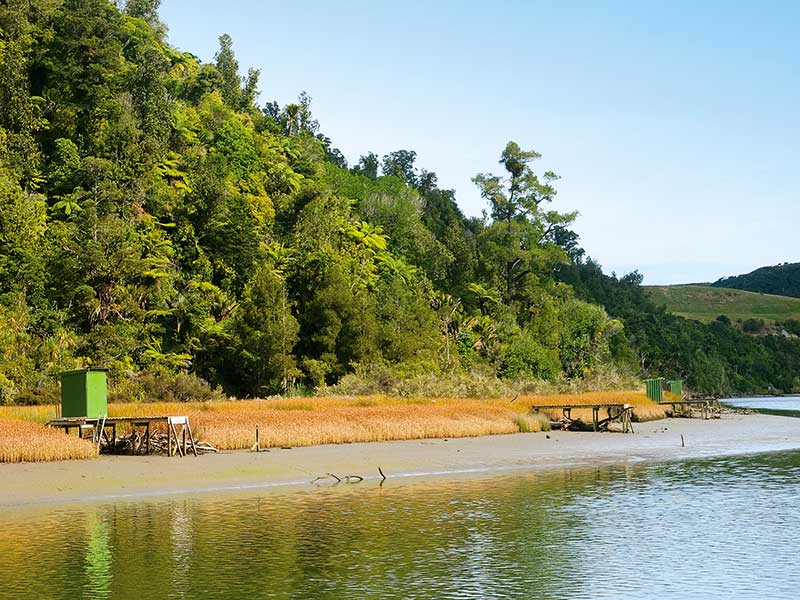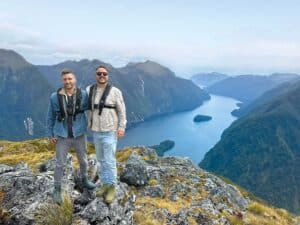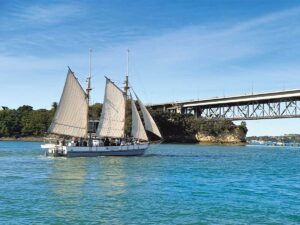Bill and I were driving the 90km north from New Plymouth to the mouth of the Mokau Estuary to catch a trip on a little trader boat called Cygnet that was built of kauri in 1913 to carry supplies up and down the river.
Over 100 years later, restored and now owned by Neil and Dawn Colman, she carries passengers on a 14km journey through the history of this wide and gently winding waterway that cuts a swathe, 158km long, through the middle-west of the North Island.
We boarded with a dozen other passengers. Neil sounded the horn, which bellowed like a wounded cow. Cygnet was underway.
Before us, the khaki-coloured water was so unruffled that the hills around the estuary were mirrored perfectly on its surface. Behind us, Cygnet’s wake corrugated the reflections as she puttered up the river, as she’d done a thousand times before.
The land around here was once covered in native trees until milling denuded the forests. But there are remnants. We chugged past fern-covered Motu-Tawa Island, which according to Neil is a Maori burial ground (the last burial was only five years ago).
A little later, he pointed out a large grove of rimu and kahikatea trees that he reckoned were 600-800 years old, saved from the axe because they are tapu. In older times bodies of the dead were apparently placed in their branches. I looked in vain for a skeleton or two.
If we’d been able to peer deep into the scrub we might have seen the odd remnant of the coalmining and milling industries that, in the late 1800s and early 20th century, made this waterway as busy as New Plymouth’s main street.
After WWI, tracts of land on either side of the Mokau were allotted to returning soldiers for dairy farming and Cygnet became the go-to girl for delivering milk to the dairy factory. Until a road was put in in 1956 Cygnet was also a lifeline for families up river. Then, no longer needed, she was taken to Kawhia where she was used as ferry for about 20 years and then ignominiously dumped in a paddock to rot. In 1993, along came her saviours.
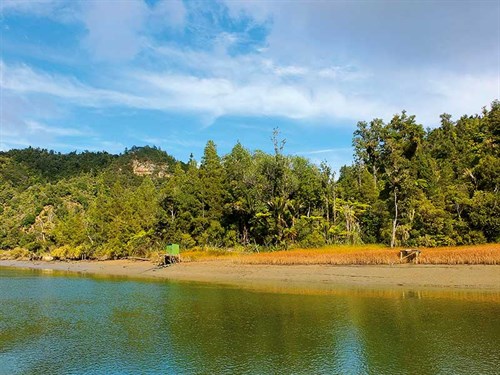
Recognising the great contribution to history that the little boat had made, Rex and Tracy Mather took pity on Cygnet, hauled her away and spent the next 12 months restoring her. Today she is no ugly duckling – a solid and purposeful little boat of an age that makes her charming.
Nowadays, the most activity on the riverbank centres around a diminutive critter that one whitebaiter referred to as ‘wriggilus evadus’. As we nosed our way up stream whitebait stands, 50 metres apart, jutted from the bank like large leggy insects wading into the water.
It wasn’t the in-season when we were nosing our way up river so, bar the whitebait stands, there was little sign of habitation except for a fence or two and the odd carcass of an old milk stand.
The journey up river ended at a grassy picnic area. We disembarked to lunch on delicious sandwiches and pastries made by the cafe in Mokau and then sauntered along a rough-hewn track through the backdrop of native forest and, at the river’s edge, fed some plump wriggilus eels that were not evading us at all.
After an hour we re-boarded the boat to tootle back the way we had come. Neil was still at the helm but Cygnet had plied this route so often she might have done it on her own.
Mokau River Cruises
Mokau River Cruises operates daily, once in the morning and once in the afternoon. Times are flexible but not tide dependent. Booking is essential. The cost is $60pp and $15 for children. Cygnet has her annual health check between mid-June and the end of August but is back in operation for the whitebait season. Phone 0800 665 2874
Staying over
Sea View Holiday Park on the beachfront between Awakino and Mokau, 10 minutes drive north of the village
Tainui Wetere Domain just south of Mokau township
Whitebait Inn and Camping Ground, 55 North Street, Mokau
Read the full article in issue #130 of Motorhomes Caravans & Destinations magazine. Subscribe here.

